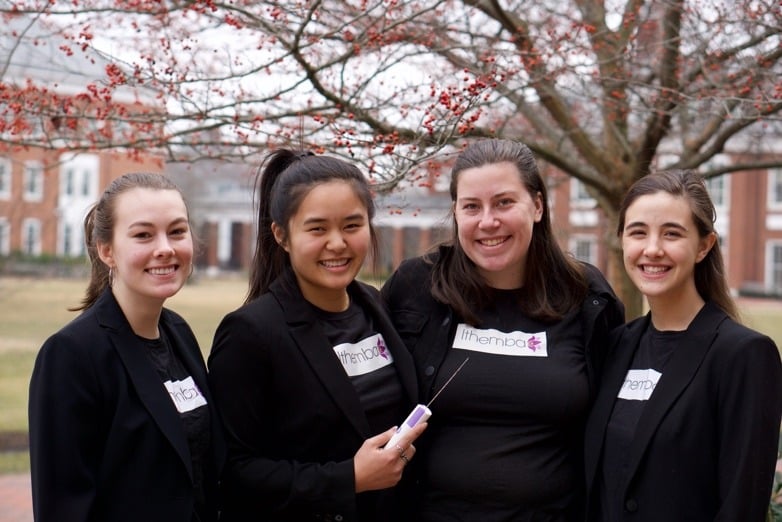Members of Ithemba, an all-female team of biomedical engineering students from Johns Hopkins University, are applying their shared passion for women’s health to bring hope to women with breast cancer. The name Ithemba, in fact, translates to “hope” in Zulu. By traveling to places such as South Africa, Peru, and Guyana, team members learned first-hand about the lack of safe, early, and accurate methods to diagnose breast cancer in rural areas of these countries. To address this problem, the team created a reusable, low-cost, contamination-free breast biopsy device to expand breast cancer diagnostic capabilities in low resource settings. This inventive work has earned Ithemba the 2019 $10,000 “Cure it!” Lemelson-MIT Student Prize.
Following a nationwide search for the most inventive college students, the Lemelson-MIT Student Prize recognizes young inventors who have dedicated themselves to solving global problems. Teams were selected based on a variety of factors including the overall inventiveness of their work, the invention’s potential for commercialization or adoption, and youth mentorship experience.

